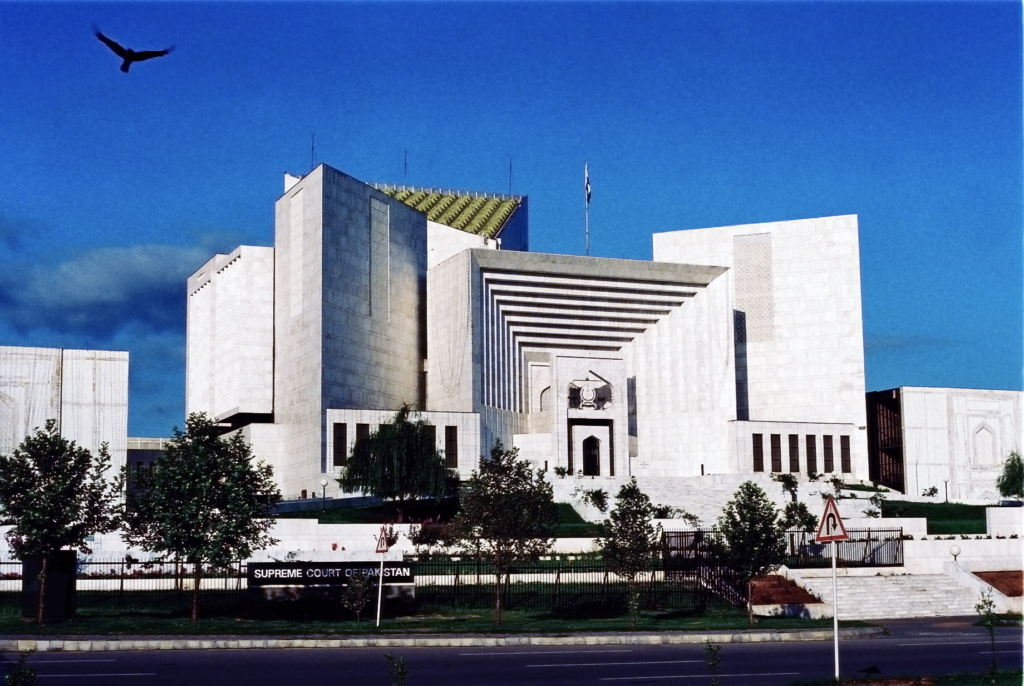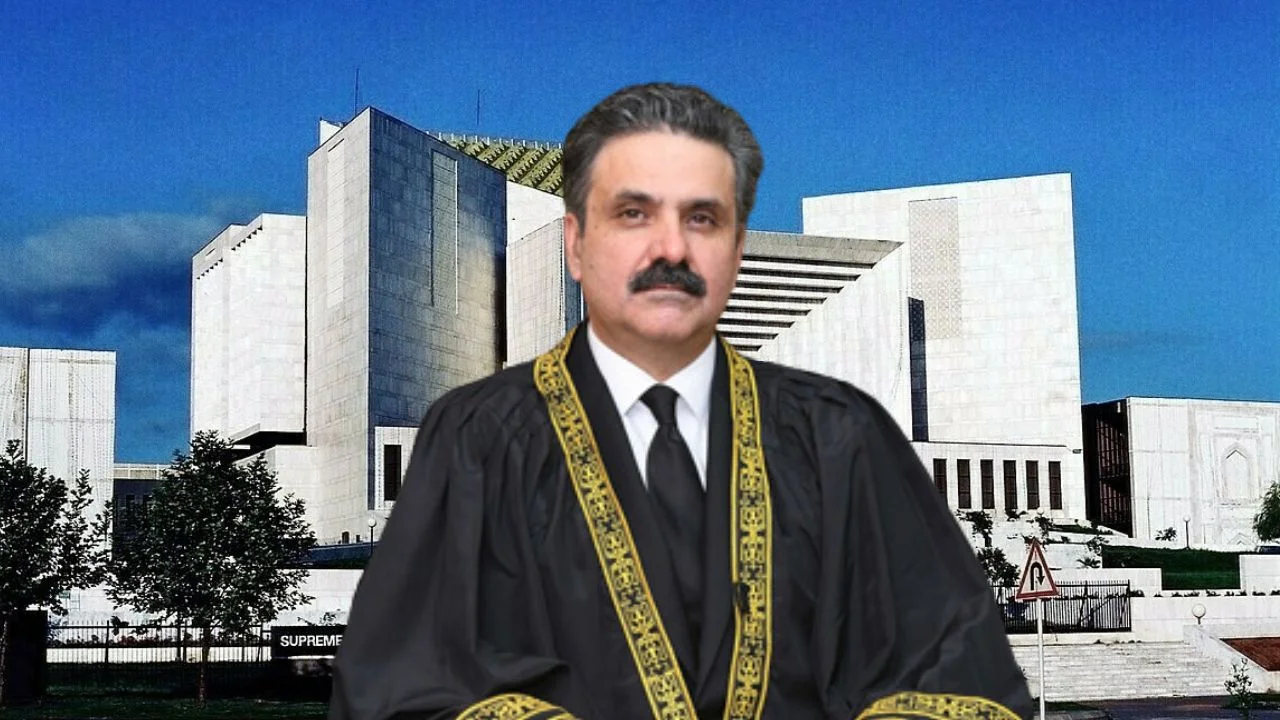Justice Yahya Afridi is set to assume the role of Chief Justice of Pakistan on October 26, 2024, following the retirement of Chief Justice Qazi Faez Isa. His appointment marks a significant moment for Pakistan’s judiciary, as it reflects the culmination of a transparent and democratic process in line with recent constitutional amendments.
Justice Afridi’s nomination has been welcomed by the legal community, emphasizing his wisdom, integrity, and commitment to upholding the law.
A New Era in Judicial Appointments
The appointment of Justice Yahya Afridi as the 30th Chief Justice of Pakistan represents a shift in the country’s judicial appointment process. Historically, the most senior judge of the Supreme Court was appointed as Chief Justice. However, the 26th Constitutional Amendment introduced a new mechanism for appointing the Chief Justice.
Now, the top judge is chosen on the recommendation of a Special Parliamentary Committee (SPC) from among the three most senior Supreme Court judges.
In the past, senior puisne judge Mansoor Ali Shah was expected to become the Chief Justice, given his seniority. However, under the new process, the SPC considered three judges—Justice Mansoor Ali Shah, Justice Munib Akhtar, and Justice Yahya Afridi—and ultimately recommended Justice Afridi for the role.
Read : Pakistan Rebuilding Baoli Sahib Hindu temple Which Has Become Dysfunctional in 1960
President Asif Ali Zardari confirmed his appointment under Article 175A of the Constitution, with the formal oath-taking scheduled for October 26, 2024.
The introduction of the SPC in the selection process aims to increase transparency and ensure that the appointment of the Chief Justice reflects the broader will of the parliament. It is also meant to bring a balanced approach to the judiciary’s role in upholding the constitution and serving the nation.
Read : “We Want to Merge With India”: Posters Emerge Demanding Merger With India in PoK
This new procedure has sparked debate within the legal and political communities, with some seeing it as a way to ensure the independence of the judiciary, while others argue it introduces political considerations into judicial appointments.
Justice Afridi’s Judicial Journey
Born on January 23, 1965, Justice Yahya Afridi has had an illustrious career in Pakistan’s judicial system. He took the oath as the youngest Chief Justice of the Peshawar High Court in December 2016 and was elevated to the Supreme Court in June 2018.
His rise through the judiciary has been marked by his dedication to the rule of law, his deep understanding of the legal system, and his commitment to fairness and justice.
Justice Yahya Afridi is known for his non-controversial and neutral personality, qualities that have earned him respect within the legal community. His colleagues describe him as a man of character with a remarkable ability to interpret the law in ways that promote justice and fairness.
His appointment as Chief Justice has been widely praised by various bar associations across the country, including the Sindh Bar Council (SBC) and the Khyber Pakhtunkhwa Bar Council (KPBC).
The SBC, in particular, highlighted Justice Yahya Afridi’s wisdom and character, noting that his legal acumen makes him an ideal candidate for the role of Chief Justice.

The KPBC echoed these sentiments, emphasizing his neutrality and non-political stance, which they believe will strengthen the judiciary’s role in upholding the constitution and delivering justice to the people. The bar associations have expressed hope that Justice Yahya Afridi will bring positive change to Pakistan’s judicial landscape.
Justice Afridi’s reputation as a distinguished jurist with unmatched legal vision sets him apart as a leader capable of guiding the judiciary through challenging times. His commitment to ensuring the supremacy of the parliament, enforcing the constitution, and providing affordable and prompt justice is seen as a significant advantage for the judiciary and the nation as a whole.
Implications of Justice Yahya Afridi’s Appointment
The appointment of Justice Yahya Afridi as Chief Justice comes at a critical time for Pakistan’s judiciary. The country’s legal system has faced numerous challenges in recent years, including delays in justice delivery, concerns about judicial independence, and the need for legal reforms to ensure that justice is accessible to all citizens.
Justice Afridi’s appointment is expected to address some of these issues, particularly in terms of enhancing the judiciary’s efficiency and upholding the rule of law.
One of the major advantages highlighted by the legal community is Justice Afridi’s focus on ensuring the supremacy of the parliament and the enforcement of the constitution. His commitment to working towards affordable and prompt justice aligns with the needs of the people, who often face long delays in the legal system.
By addressing these issues, Justice Yahya Afridi is expected to improve public confidence in the judiciary and reinforce the importance of the rule of law in Pakistan.
The SPC’s decision to nominate Justice Afridi also reflects a broader effort to balance power within the country’s political and judicial institutions. The KPBC noted that the appointment of a Chief Justice from Khyber Pakhtunkhwa, alongside a president from Sindh and a prime minister from Punjab, brings a sense of balance to the country’s leadership.
This regional representation is seen as beneficial for the future of the country, as it ensures that all provinces have a stake in the nation’s governance.
Moreover, Justice Afridi’s appointment has raised hopes for a more efficient and responsive judiciary. The KPBC called for an increase in the number of Supreme Court judges to ensure that justice is delivered more swiftly to the masses. This call for judicial reform aligns with Justice Afridi’s focus on improving the legal system’s efficiency and accessibility.
The transparency and democratic nature of Justice Afridi’s appointment process have been widely praised by government officials and legal experts alike. Information Minister Attaullah Tarar emphasized that the nomination was made in an “extremely transparent and democratic manner” under the new constitutional amendment.
This marks a significant departure from past practices, where judicial appointments were often criticized for being opaque and politically influenced.
Challenges and Opportunities Ahead
As Justice Yahya Afridi prepares to take on the role of Chief Justice, he faces both challenges and opportunities. The judiciary in Pakistan has long been at the center of political and social debates, and the role of Chief Justice carries immense responsibility in shaping the country’s legal landscape.
Justice Afridi’s leadership will be crucial in addressing key issues such as judicial independence, the rule of law, and access to justice for all citizens.

One of the immediate challenges he will face is managing the expectations of both the legal community and the public. The judiciary has often been criticized for delays in justice delivery, and there is widespread demand for legal reforms that address these concerns. Justice Afridi’s experience and commitment to judicial efficiency will be critical in tackling this issue and ensuring that the legal system works more effectively for the people.
Another challenge lies in maintaining the delicate balance between the judiciary and other branches of government. While the new appointment process aims to enhance transparency and parliament’s role in judicial appointments, there is a risk that political considerations could influence the judiciary’s independence.
Justice Afridi’s neutral and non-political stance will be essential in navigating these dynamics and ensuring that the judiciary remains an impartial guardian of the constitution.
At the same time, Justice Afridi’s appointment presents an opportunity to strengthen the judiciary’s role in upholding the rule of law and protecting citizens’ rights. His leadership can bring much-needed reforms to the legal system, improving access to justice and ensuring that the judiciary operates with greater efficiency and integrity.
By focusing on these priorities, Justice Afridi has the potential to leave a lasting impact on Pakistan’s judiciary and contribute to the nation’s progress.
Justice Yahya Afridi’s appointment as the 30th Chief Justice of Pakistan marks a significant moment in the country’s judicial history. His nomination reflects a transparent and democratic process under the new constitutional amendment, and his leadership is expected to bring positive change to Pakistan’s legal system.
With a strong commitment to upholding the constitution, delivering justice, and ensuring the judiciary’s independence, Justice Afridi is well-positioned to guide the judiciary through the challenges and opportunities that lie ahead.

